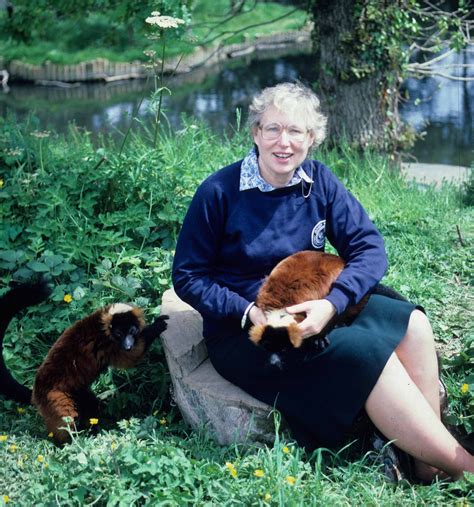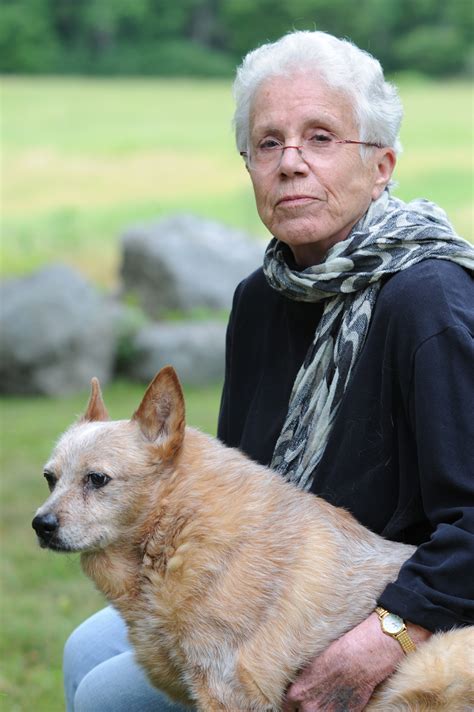A Quote by Richard Preston
If ontogeny recapitulates phylogeny, then children are somewhat closer to our roots as primates in the arboreal forest. Humans appear to be the only primates that I know of that are afraid of heights. All other primates, when they're scared, they run up a tree, where they feel safe.
Related Quotes
Primates stand at a turning point in the course of evolution. Primates are to the biologist what viruses are to the biochemist. They can be analysed and partly understood according to the rules of a simpler discipline, but they also present another level of complexity: viruses are living chemicals, and primates are animals who love and hate and think.
We belong to that order of mammals, the primates, distinguished by its propensity for repeated single litters, intense parental care, long life-spans, late sexual maturity, and a complex and extensive social existence... Our protracted biological and psychological helplessness, which extends well into the third year of life, intensifies the bond between infant and parents, making possible a sense of generational continuity. In contrast to other primates these bonds are not obliterated after sexual maturity.
I think that intelligence is such a narrow branch of the tree of life - this branch of primates we call humans. No other animal, by our definition, can be considered intelligent. So intelligence can't be all that important for survival, because there are so many animals that don't have what we call intelligence, and they're surviving just fine.




































